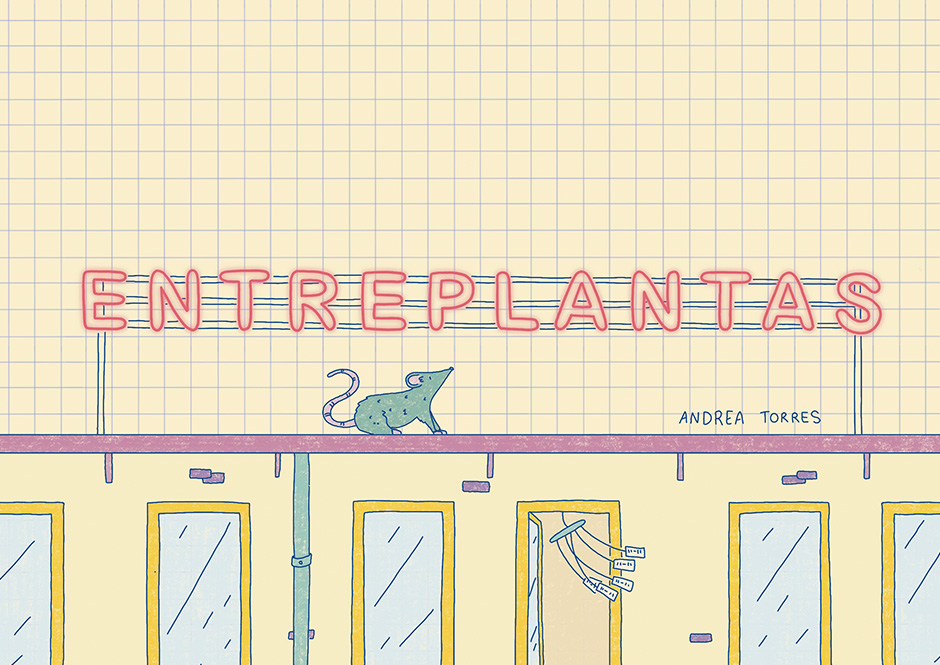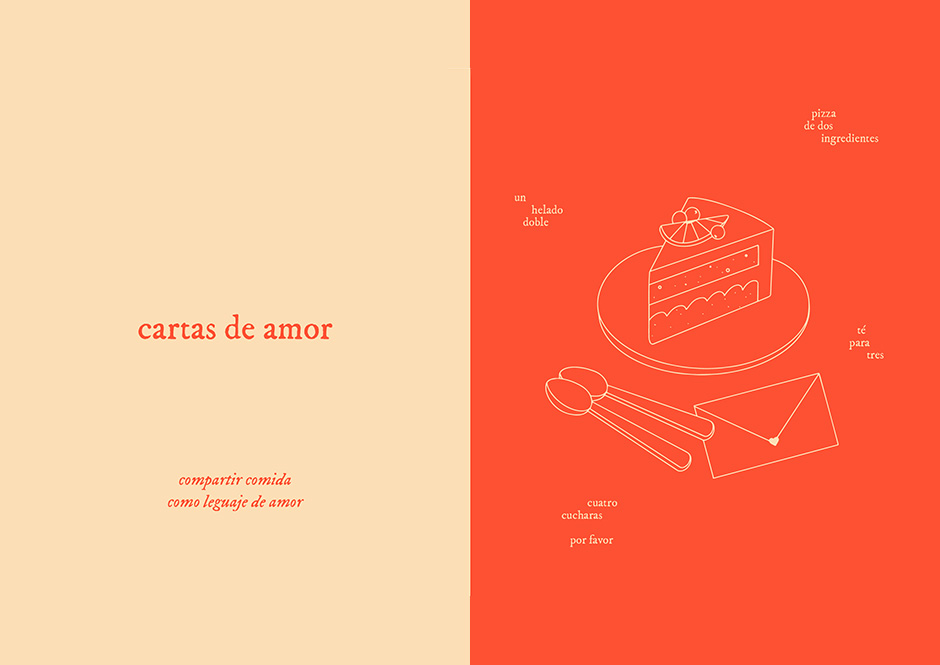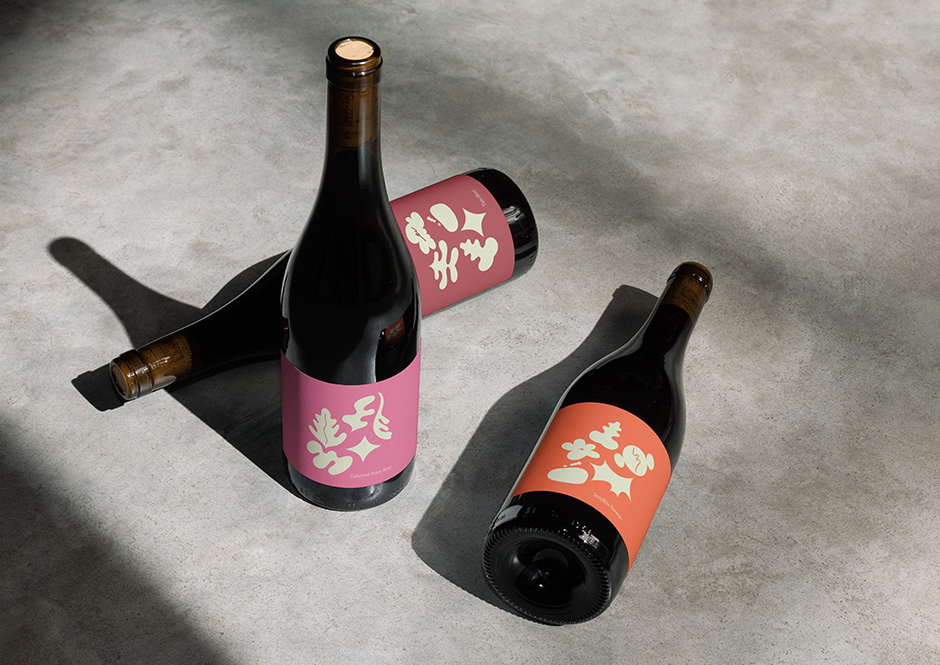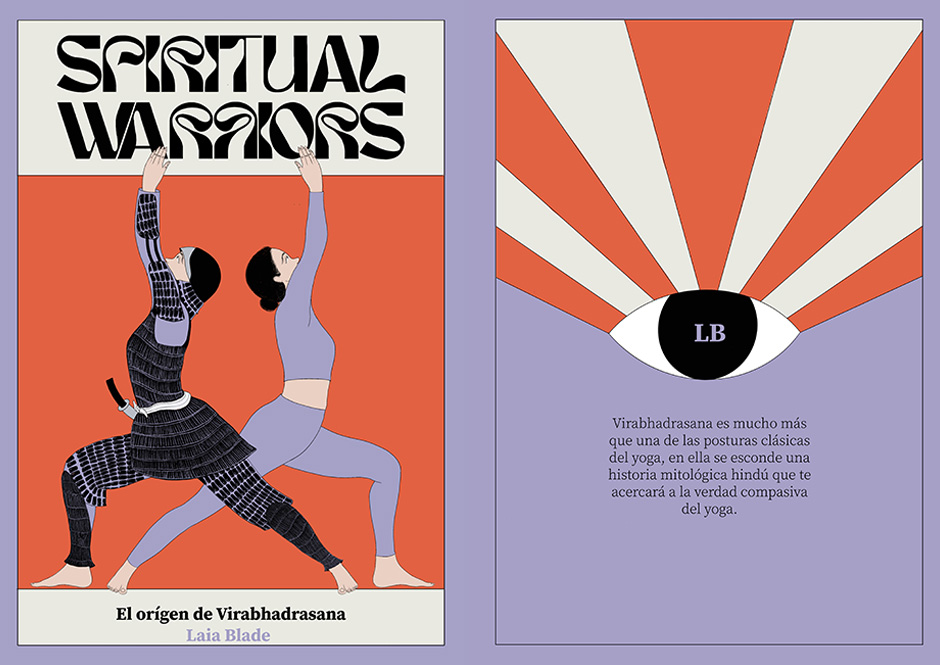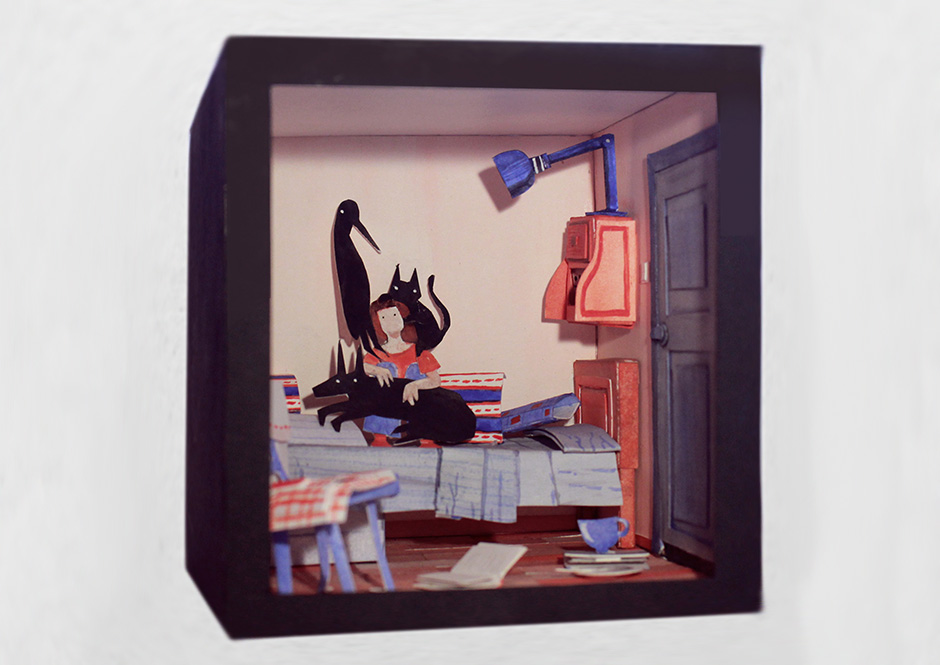
Postgraduate Degree in Digital Illustration and New Media
Meet illustration strategic role in the structure of dissemination and promotion of projects and develop your professional skills in one of the most effective means for the transmission of ideas and concepts.
Description of the curriculum
- Edition: 9th
- Teaching period: from October 2024 to June 2025. Final master's project presentation: June 2025
- Schedule: Tuesday and Thursday from 4 p.m. to 7 p.m. (complete)
- Modality: on-site
- Language: Spanish
- Price: 4.760 €
- Qualification: Postgraduate Degree in Digital illustration and new media awarded by the UVic-UCC
- Credits: 30 ECTS
Presentation
The evolution and constant development of information and communication technologies have led to new habits with regard to behaviour, consumption and interaction with products. In this context, illustration has positioned itself an important strategic element for the dissemination and promotion of projects.
The postgraduate programme addresses illustration created and applied in the contemporary and technological environment and provides professionals with the strategic capabilities required to establish dynamic visual communication processes.
The syllabus is targeted towards the requirements of self-employed professionals when producing digital illustration projects, based on methodologies for planning, development, techniques and resources. The programme is structured as eight modules which include digital tools, creativity and practical applications, and culminates with a final project.
The projects that are completed during the postgraduate diploma are presented in relation to digital methods and means of production, defining styles and trends that respond to the needs of this exponentially growing market.
Syllabus
The Postgraduate Degree is divided into 8 modules and concludes with the submission of a Final Project.
Module 1 – Graphic editing Module 2 – Fundamentals and applications Module 3 – Conceptualisation Module 4 – Illustration for eBooks Module 5 – Artificial Intelligence, Extended Realities and Web3 Module 6 – Transmedia communication Module 7 – Illustration applied to the product Module 8 – Project methodology
Programme
Module 1 – Graphic editing
Based on the design and development of an online editorial front cover, technical content related to the industry-standard editing programs will be introduced. The aim is the acquisition of the planning and management fundamentals required for the proper use of tools and format types: vector graphics, rasterisation and layout.
To enable the exercises within the postgraduate diploma to be properly carried out, practical fundamentals will be covered alongside the use of the industry-standard graphic editing programs (Illustrator, Photoshop and InDesign).
- Creation and modification from an analogue original.
- Colour application tools.
- Layout, typographic design and animation.
- Adaptation of interactive design to tablets and smartphones.
- Adaptation of images to packaging (mock-up).
Module 2 – Fundamentals and applications
The content of this module addresses the formats and platforms through which illustration and graphic production is applied. Knowledge of these is an important starting point for the future planning of the promotion and design of projects in relation to individual aims. Moreover, analysis of media will also provide an introduction to the study of multimedia elements, where techniques related to interaction, animation and other resources will be outlined.
- Adaptation of manual illustration to digital formats.
- Creation of draft animations.
- Design of interactive products, interfaces and usability.
- Sprites, Texture Atlas, Frame by Frame and other formats for developing digital applications.
- Interaction and animation tools for video games and apps.
Module 3 – Conceptualisation
Visual communication strategies and resources will be developed through a series of exercises and the presentation of content. The primary goal is the acquisition of skills related to creative processes and communicating messages.
The module is delivered as a workshop oriented towards conceptual development in which individual, cultural and social experience intervene. The practices and theoretical content applied provide an essential basis for the realisation and development of future proposals within the postgraduate diploma, while helping the students to familiarise themselves with common processes associated with artistic and advertising language.
- Image theory.
- Visual resources and means of representation.
- Plastic significance.
- Icon creation.
- Conceptualisation and perception.
- Formal and conceptual synthesis.
Module 4 – Illustration for eBooks
The image as a visual representation of a text or concept can be found in nearly all projects involving illustration. Through the creation of illustrations, the methodological processes for conveying messages and their adaptation to the languages of different audiences will be studied. Meanwhile, and following an in-depth study of the formats, the technical procedures for adapting animated illustrations to electronic devices will also be covered.
- Methodologies for the planning of graphic production process.
- Formats and media to which images are applied.
- Proposal of illustrations suitable for eBooks.
- Analysis of styles, genres and dissemination channels.
- Development and creation of elements and characters.
- Adaptation of illustration to digital formats.
- File and application formats.
Module 5 – Artificial Intelligence, Extended Realities and Web3
Through content and exercises, this module deals with the study and application of new technologies that provide differential value and competitive advantages to our illustration projects. Extended technologies (virtual reality, augmented reality and mixed realities), Web3 and Artificial Intelligence.
- Extended Realities as new platforms for content creation and visualization
- Virtual Reality (VR), Augmented Reality (AR) and Mixed Reality (MR)
- Exploring the creation of specific content for Extended Realities
- Web3 and Blockchain: Their present and future utilities within the world of illustration
- Artificial Intelligence (AI): Definition, origin, evolution and uses
- Application of Artificial Intelligence in illustration projects
Module 6 – Transmedia communication
Based on the proposal of a promotional campaign, some of the trends and tools applied in digital marketing will be analysed, along with the importance of the content and the interaction of the potential user, which are typically decisive elements for effective dissemination. The transmedia narrative is one of the most widely employed strategies in advertising applied to new media. During the module, practical exercises will be completed in multiple formats to enable the development of a project that studies planning processes and technical applications.
- Transmedia narratives.
- Planning and viability of graphic campaigns.
- Strategies and resources for the development of promotional campaigns.
- Narrative development in promotional campaigns.
- Multiplatform and crossmedia.
- Transmedia creativity and media planning.
- Analysis and use of interaction resources.
- Application of multimedia elements.
Module 7 – Illustration applied to the product
The image is a decisive element in branding and is essential to the process of attracting a specific audience, while also defining aspects related to the perception of and interaction with the product. Regarding its application, aspects related to functionality, identity, media, innovation and differentiation will be covered. Addressing specific and individual aims, the module analyses the adaptability and integration of digital illustration applied to products.
- Proposal of illustrations applied to the product.
- Creation of a Capsule Collection.
- Application to industrial design.
- Study and adaptation of images to products.
- Resources and production techniques.
Module 8 – Project methodology
This module covers promotion and professional orientation, addressing planning processes for methodologies and strategies. The primary aim is to design a self-promotion proposal, taking into account the various stages that provide methodological support to the project through the formulation of general and specific goals, beginning with the research and analysis process and progressing to its application and presentation.
- Planning and project management.
- Promotion strategies.
- Resource acquisition.
- Content selection.
- Construction, planning, description and presentation.
- Analysis of dissemination and promotion channels.
Projects
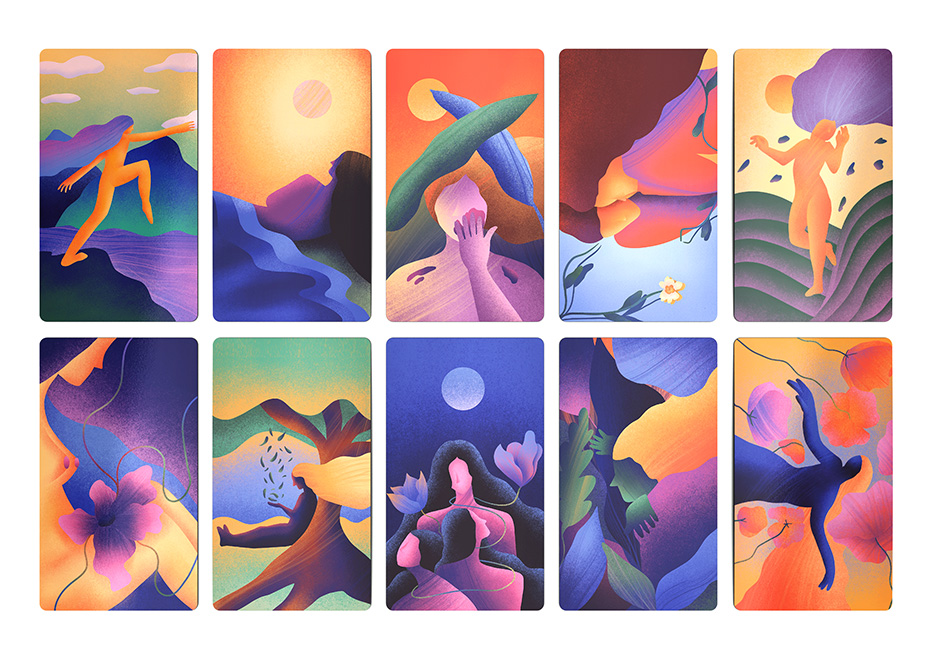
Florea. 20 consejos que necesitas saber a tus 20 by Kari Hasel
Teachers
Coordinator
Sito Mújica
A qualified Graphic Designer and visual artist
Coordinator of Graduate Illustration Digital and New Media
Guillem Casino
Technological coaching for graphic design
Andrés Requena
Graphic Designer and Art Director
Xavi Ramiro
Illustrator
Mercè Iglesias
Graphic Designer and Illustrator
Chuso Ordi
Graphic artist
Javier Jaén
Graphic Designer and Illustrator
Javi Royo
Illustrator and Graphic Designer
Martín Tognola
Illustrator - Press / Editorial
Rubén Bernal
Specialist in technological innovation and creativity
Career opportunities
- Illustration applied to digital media.
- Illustration applied to products.
- Advertising illustration.
- Corporate illustration.
- Press illustration.
- Art direction for digital publications.
- Management of digital communication projects.
- Management of multimedia promotional projects.
Payment methods
Total cost of the course: 4.760 €
The total cost includes an amount of 200 € concerning the university fees, the administration expenses and the compulsory insurances.
Payment methods
BAU, Arts and Design College of Barcelona offers different terms of payment:
- Single payment
- Part payment, in 3 instalments:
- 1st payment, due on enrolment: consisting of 40 % of the fees excluding taxes. An amount of 200 € concerning the university fees is added to the resulting cost
- 2nd payment, due November 5: consisting of 30% of the course excluding taxes
- 3rd payment, due January 5: consisting of 30 % of the course excluding taxes
Students and former students of BAU benefit from 10% discount on any of the courses if they have exceeded at least 50% of the credits for a Degree, Higher Degree in Design or the Diploma in Graphic Design; or 100% of the credits for any of the Master’s or Postgraduate degrees.
More information about scholarships and grants.
Information about the registration process.
Academic regulations for Masters and Postgraduate Degrees of BAU.
Download the brochure
Enter your details and we will send you an email with the Postgraduate Degree in Digital Illustration and New Media brochure.
